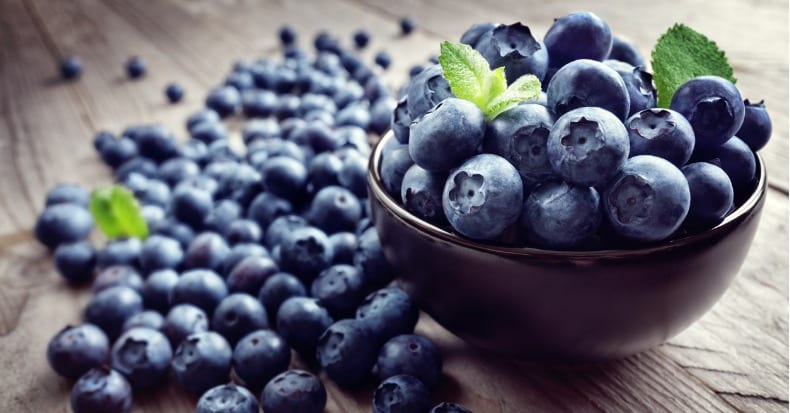Not only are blueberries delicious and easily attainable at the supermarket but they are also incredibly good for you. But don’t take our word for it, let’s look at what researchers say…
A 2019 review looked at findings from eleven studies that involved blueberry interventions. The researchers found that blueberries benefit memory and executive function in both children and adults, and blueberries can improve psychomotor function in seniors, including those with mild-cognitive impairment. The authors also reported that blueberry intake reduces risks for developing metabolic syndrome (heart disease, stroke, and type-2 diabetes), cancer, cardiovascular disease, and cognitive decline.
In a 2018 study involving 215 older adults, researchers observed that those with the greatest cognitive impairments who consumed a daily 600mg polyphenol-rich grape and blueberry extract for six months experienced significant improvements with respect to episodic memory.
Not only are blueberries low in calories (only 84 calories per cup) but just one cup of blueberries contains four grams of fiber, 24% of the recommended daily allowance (RDI) of vitamin C, 36% of the RDI of vitamin K, and 25% of the RDI of manganese.
Blueberries are antioxidant rich, which can protect the body from the free radicals that are known to damage cells and contribute to aging and diseases, like cancer. These antioxidants can also reduce oxidization of LDL (“bad”) cholesterol, which is a risk factor for heart disease.
There is research that suggests regular blueberry intake is associated with lower blood pressure and a reduced risk for heart attack.
Blueberries can improve insulin sensitivity and glucose metabolism—both of which can reduce the risk for diabetes and may even benefit diabetics.
Much like cranberries, blueberries contain anti-adhesive substances that can help keep bacteria from sticking around in the bladder and causing a urinary tract infection.
If you regularly exercise (you do, don’t you?), then the good news is that blueberries may reduce soreness and aid in muscle recovery following a strenuous workout.
BOTTOM LINE: Eat blueberries!
